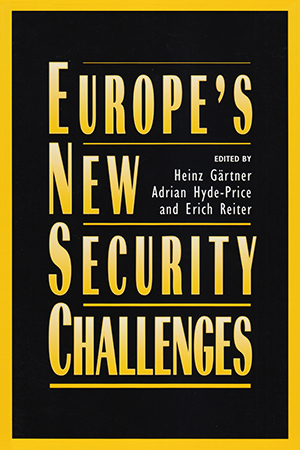
- 2001/470 pages
Europe's New Security Challenges
Hardcover: $67.00
ISBN: 978-1-55587-905-1
Paperback: $24.50
ISBN: 978-1-55587-930-3
A central point of controversy among both academics and policymakers is the nature and significance of security in the post–Cold War world. Engaging that discussion, this original collection explores the new security challenges facing Europe.
The authors assess the relevance and usefulness of various actors and various approaches for tackling those security challenges. Seeking to avoid dichotomous thinking, their nuanced efforts probe the areas of ambiguity and complexity between war and peace, conflict and cooperation, "hard" and "soft" security, and state and society.







